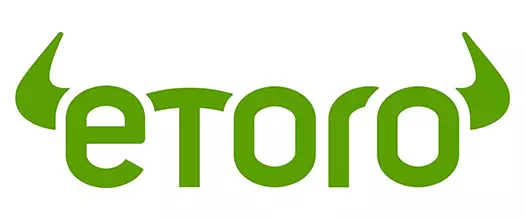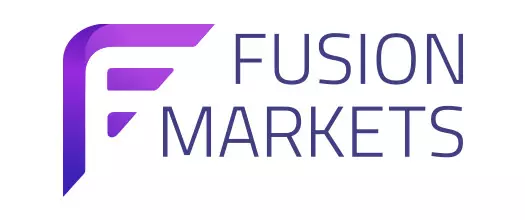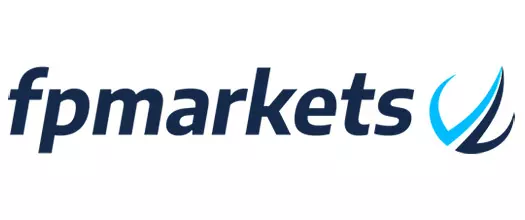- Jump to:
- Main features of the best UK Forex brokers
- Forex Legislation
- Financial Regulators
- Payment Methods
- Trading Software
- Mobile Trading
- FAQ
Our team of expert traders tested many regulated and trustworthy forex brokers that accept traders from the UK and compiled a top list of the best among them. Each broker operating in the United Kingdom received a quality score based on several factors, including Trustpilot rating, regulation, fees and commissions, available trading platforms, customer service, and more.
 Plus500 USThis content applies only to Plus500 US and clients from the United States. Trading futures involves the risk of loss.
Plus500 USThis content applies only to Plus500 US and clients from the United States. Trading futures involves the risk of loss. eToro61% of retail investor accounts lose money
eToro61% of retail investor accounts lose money Fusion Markets74-89% of retail's CFD accounts lose money
Fusion Markets74-89% of retail's CFD accounts lose money FP Markets73.85% of retail investor accounts lose money
FP Markets73.85% of retail investor accounts lose money Global Prime74-89% of retail CFD accounts lose money
Global Prime74-89% of retail CFD accounts lose money Pepperstone75.5% of retail investor accounts lose money
Pepperstone75.5% of retail investor accounts lose money
Below you can find a comprehensive comparison table of forex brokers for traders in the United Kingdom. We rank them based on several factors including regulation, spreads and commissions, Trustpilot rating, trading instruments, trading platforms, and deposit and withdrawal methods.
Our team has thoroughly evaluated all brokers listed below using TradingPedia’s exclusive methodology.
Main features of the best UK forex brokers
- Brand
- Trading platforms
- Minimum deposit
- Regulations
- Trading instruments
- Spreads
- Leverage for Forex CFDs
- Leverage for Crypto CFDs
- Leverage for Indices CFDs
- Deposit methods
- Withdrawal Methods
- Commission per Lot
- Contact details
The UK is an island country lying off the north-western coast of Europe’s mainland. Commonly referred to as Great Britain, it comprises Scotland, Wales, England, and a portion of Ireland. Its capital, London, has been a thriving hub for culture, commerce and finance for centuries.
The city is also home to one of the oldest stock exchanges in history, the London Stock Exchange, whose market capitalisation reached US$4.59 trillion in the spring of 2018. One interesting historical fact is that brokers were prohibited from entering the exchange in the late 17th century because of their poor manners. Instead, they gathered at the coffee houses in the vicinity, where they would list the prices and exchange rates of common commodities such as salt, paper, sugar and coal.
The London Stock Exchange is also where the Financial Times Stock Exchange 100 Index (FTSE 100) is traded. Colloquially known as the Footsie, the index comprises 100 of the largest companies in the UK, including Tesco, HSBC Holdings, BP, Barclays and British American Tobacco.
The country has long enjoyed a stable, independent and well-developed economy, which served as one of the main catalysts for the Industrial Revolution – a process that began in the UK in the 18th century before it spread to other parts of the Old Continent.
Considering all this, it is hardly surprising that the UK has one of the most prominent forex trading markets in the world. According to the Bank for International Settlements (BIS), the London share of daily trading volumes increased from 37% in 2016 to 43% in 2019.
Forex traders in the country enjoy a strictly regulated trading market, with a broad range of locally licensed brokerage firms to choose from. UK brokers have long been known for their high-quality trading products, transparency and strong reputation. All participants in the market must abide by the rigorous rules and regulations set out by the local financial watchdog, the Financial Conduct Authority.
UK forex legislation
The foreign exchange trading industry in the UK is regulated by the Financial Conduct Authority (FCA) under the Financial Services Act of 2012. This piece of legislation effectively created a new regulatory framework that governs all financial services in the country.
Forex brokers looking to operate in the UK must first acquire the necessary licence from the local watchdog. There are three types of licences, starting with the Dealer Licence granted to the so-called ‘market makers’.
The Intermediary Licence restricts brokerages’ activities to the Straight-Through Processing (STP) of traders’ orders. Finally, there is the Restricted Broker Licence. It authorises brokers to sell and market their products to UK residents but denies them the right to hold customers’ funds.
The first two types, the Dealer and the Intermediary Licence, also enable brokerages to sell contracts for difference (CFDs) for currency pairs, commodities like gold and silver, shares and futures to retail and professional traders. In contrast, a company with a Restricted Licence is only permitted to introduce customers to firms with Dealer and Intermediary licences.
Brokerages must meet specific minimum capital requirements to obtain FCA licences. Market makers need a capital of at least €730,000. The requirements for Intermediary Licences and Restricted Broker Licences are €125,000 and €50,000, respectively.
Licensed companies must have a physical presence in the UK to receive authorisation. They must appoint qualified Compliance Officers and Chief Executive Officers based in the country and approved by the local regulator.
UK-licensed trading firms are also obliged to participate in the Financial Services Compensation Scheme (FSCS), which provides compensation to customers if their brokers go out of business. The scheme aims to strengthen consumers’ confidence in the local financial market. As of April 2019, the compensation limit of the FSCS was raised from the previous £50,000 to £85,000 per person.
There are many uncertainties surrounding the local foreign exchange market now that the UK is about to withdraw from the European Union (EU). For the time being, however, the Markets in Financial Instruments Directive (MiFID) still applies in the country. Many of the MiFID regulations will probably remain in force after Brexit officially takes effect.
Under one of the provisions of the MiFID, licensed UK brokers must segregate customers’ funds from their own capital. This ensures brokers never use traders’ money to cover operational expenses.
Companies are strictly prohibited from resorting to manipulative practices to attract customers. They also cannot enter into positions against their traders or provide them with financial advice, especially in relation to high-risk trading decisions.
Some regulatory requirements also concern the sale, distribution and marketing of CFDs to retail clients. All providers of leveraged derivatives on the local market must publish mandatory risk-disclosure statements that inform prospective customers what percentage of retail traders lose money when trading with leverage.
Speaking of leverage, there are curbs on this as well. The UK adopted the caps for retail customers proposed by the EU regulator, the European Securities and Markets Authority (ESMA). These changes came into effect at the beginning of August 2019. The caps vary depending on the traded assets’ volatility.
Thus, leverage is limited to 1:30 for major forex pairs, 1:20 for gold, major indices, minor and exotic pairs, 1:10 for all other commodities and non-major indices, 1:5 for individual equities, and 1:2 for cryptocurrencies. Provided that a trader’s position falls below 50% of the margin required to keep it open, the broker must immediately close the position to prevent the customer from losing too much money.
While we are on the subject of derivatives, it is worth mentioning that the UK regulator permanently outlawed the distribution, sale and advertising of binary options to retail customers in April 2019. These are highly volatile speculative instruments that can lead to significant financial losses in the hands of inexperienced retail investors.
UK financial regulators
The UK’s watchdog, the Financial Conduct Authority (FCA), is widely regarded as one of the strictest financial regulators in the world. The FCA came into being after the passing of the 2012 Financial Services Act, which abolished the previous financial regulator, the Financial Services Authority (FSA).
The new regulatory body functions independently of the country’s government and is funded by the fees it receives from the market participants it oversees. In this vein, the FCA currently scrutinises the conduct of approximately 58,000 financial companies in the country. These firms employ over 2 million individuals and contribute more than £65 billion to the local economy in the form of tax revenue.
The regulatory entity is vested with considerable powers. It has the capacity to freeze the assets of individuals and organisations while they are investigated for violations. The FCA requires brokers to process their customers’ withdrawal requests immediately and to provide annual audit reports regarding their operations.
The quasi-independent regulator, the Prudential Regulation Authority (PRA), is tasked with the regulation and oversight of local banks, credit unions, insurance companies and large investment firms. The entity promotes the safety and stability of the companies it oversees and ensures an adequate degree of protection for policyholders (in the context of insurance firms).
UK forex payment methods
It is fair to say that UK traders have a wealth of options when it comes to funding their live forex accounts. The results of a 2019 survey conducted by the German statistics portal Statista indicate that nearly half of the surveyed Brits have used their PayPal accounts when paying for online purchases.
Indeed, this digital wallet is widely available across authorised forex brokers in the country. PayPal is a reliable online payment service that enables registered users to transfer and store money within the balance of their e-wallet accounts. Payments with PayPal are fully anonymous and highly time-efficient.
When initiating a deposit, the trader is redirected to the PayPal system, where they access their account using their wallet login credentials. This prevents payees from disclosing any sensitive information, such as credit-card or bank-account numbers.
Yet PayPal is not the only wallet available to UK customers. Brokers frequently offer it alongside other similar payment services such as Skrill, WebMoney and Neteller. All three operate on the same principle as PayPal, i.e. they require you to register and top up the balance of your e-wallet.
The best brokers on the local market also facilitate quick and secure deposits via credit and debit cards, which rank as the UK’s second most widely used payment method. British traders can use cards from commonly available brands such as Maestro, Mastercard, Visa, Discover, Diners Club International and American Express.
As for the minimum deposit with cards, the exact amount varies between brokerages but often starts at £10. Many UK-regulated brokers waive any extra charges for customers who pay with cards. However, additional fees may be imposed by the bank if it treats the transfer as a cash transaction. The minimum processing timeframe for card deposits ranges from several hours to one business day.
Another widely offered alternative is the bank transfer. This option is preferred by many large-scale traders because there are usually no restrictions on minimum and maximum transaction amounts. Domestic bank-transfer deposits require approximately one to three working days to complete. The waiting time for international transfers typically extends to five working days.
When registering with a UK broker, forex traders are advised to choose GBP as the base currency of their accounts. This will prevent them from paying extra fees for currency conversion. Luckily, all good UK brokers support GBP as a base currency, along with the other two common options, USD and EUR.
Popular trading software in the UK
Apart from legalities and regulations, another key factor UK traders must carefully consider is the software their chosen broker uses. The best trading providers on the British market offer their customers a selection of platforms, catering to all members of the local forex community.
The software is normally available as a desktop application, a browser-based platform or dedicated mobile applications. Some companies choose to develop proprietary trading platforms instead of using software created by third parties.
With that said, a significant percentage of FCA-regulated brokers still rely on the MetaTrader 4 (MT4) and the MetaTrader 5 (MT5) platforms. Developed by MetaQuotes, MT4 and MT5 are highly regarded for their ease of use and wide range of helpful tools for analysis and risk management.
For example, traders can minimise losses by setting stop-loss orders when prices move adversely. There are technical indicators users can implement to detect notable patterns in the price movements of different asset classes, including stocks and currency pairs.
Armed with this knowledge, traders can anticipate future price fluctuations and adjust their trading strategies accordingly. Other great features of the MetaQuotes software include timeframes from one minute to one month, dozens of graphical objects and three main chart types.
Some UK-licensed brokers use the platforms of ZuluTrade, Sirix and cTrader, but their number pales in comparison with those that run on MT4 and MT5. The main appeal of these three platforms is that they support copy trading. This is particularly beneficial for small-scale retail customers who are new to the forex scene. The feature enables them to follow successful traders and copy their positions into their own portfolios.
Mobile trading in the UK
Trading on the foreign exchange markets has become increasingly accessible in recent years, largely thanks to the widespread availability of applications for portable devices such as smartphones and tablets. Such apps are particularly useful in today’s interconnected world, where the forex market plays a crucial role in day-to-day business.
All good brokers in the UK offer intuitive mobile software that enables traders to monitor the latest price movements wherever they go. Optimised for use on Android and iOS, the apps facilitate all aspects of account management, from processing payments and risk management to back-testing strategies and analysing market trends.
Most apps also feature personalised full-screen charts along with a set of drawing tools. The best brokers on the market are committed to replicating the desktop trading experience on mobile, offering smartphone and tablet users roughly the same functionality.
Of course, the exact features vary between brokers. We recommend that you check and compare the mobile apps of several firms so you can make an informed choice. If you already use the MetaQuotes software, you can download the MT4 or MT5 app from Google Play or Apple’s App Store. They work similarly to the desktop versions but allow for greater flexibility.








